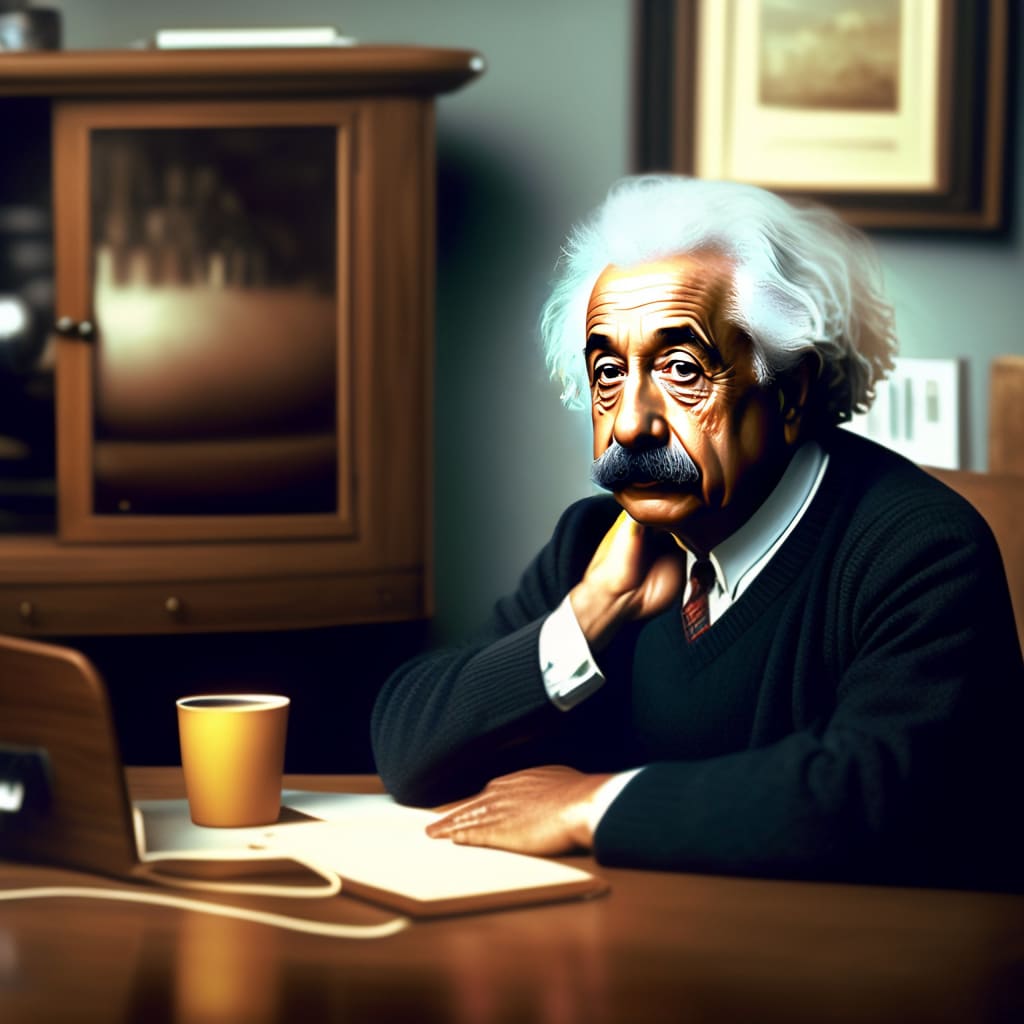Content warning
This story may contain sensitive material or discuss topics that some readers may find distressing. Reader discretion is advised. The views and opinions expressed in this story are those of the author and do not necessarily reflect the official policy or position of Vocal.

Albert Einstein was a renowned physicist who made groundbreaking contributions to the field of theoretical physics. Here is an overview of his life:
Early Life:
Albert Einstein was born on March 14, 1879, in Ulm, Germany, to Hermann Einstein and Pauline Koch. He had one sister, Maja.
He showed an early aptitude for mathematics and physics.
Education:
Einstein attended the Luitpold Gymnasium in Munich.
In 1896, he renounced his German citizenship to avoid military service and enrolled in the Swiss Federal Polytechnic in Zurich.
In 1900, he graduated as a teacher of mathematics and physics.
Career:
After graduating, Einstein struggled to find academic employment and took a job at the Swiss Patent Office in Bern.
In 1905, he published four groundbreaking papers on theoretical physics, including the special theory of relativity and the famous equation E=mc^2.
In 1915, he formulated the general theory of relativity, which explained gravitation as the curvature of spacetime.
He became a professor at various universities, including the University of Berlin.
Nobel Prize:
In 1921, Einstein was awarded the Nobel Prize in Physics for his explanation of the photoelectric effect, which demonstrated the particle-like nature of light.
Personal Life:
Einstein married Mileva Maric in 1903, and they had two sons. However, the couple divorced in 1919.
He later married Elsa Löwenthal in 1919.
Exile:
Einstein left Germany in 1933 due to the rise of the Nazi regime, as he was of Jewish descent. He settled in the United States.
He accepted a position at the Institute for Advanced Study in Princeton, New Jersey, where he spent the rest of his career.
Scientific Contributions:
Einstein's theory of relativity revolutionized our understanding of space, time, and gravity.
He made significant contributions to quantum mechanics and the development of the quantum theory of radiation.
He was a vocal advocate for civil rights, pacifism, and disarmament.
Later Years:
Albert Einstein continued to work on various scientific and political issues until his later years.
He passed away on April 18, 1955, in Princeton, New Jersey, at the age of 76.
Legacy:
Einstein's work had a profound impact on the field of physics, and he is widely regarded as one of the greatest scientists in history.
His theories are still the basis for much of modern physics.
His name has become synonymous with genius and scientific brilliance.
Albert Einstein's life and work continue to inspire scientists, students, and thinkers around the world, and his contributions to science and humanity are celebrated to this day.Albert Einstein made several major contributions to the field of physics during his lifetime. Here are some of his most significant works and contributions:
Special Theory of Relativity (1905):
In 1905, Einstein published his paper on the special theory of relativity. This theory introduced the concept that the laws of physics are the same for all non-accelerating observers and that the speed of light is constant in a vacuum.
The theory also included the famous equation E=mc^2, which relates energy (E) to mass (m) and the speed of light (c). This equation has had profound implications in nuclear physics and the development of atomic energy.
General Theory of Relativity (1915):
Einstein's general theory of relativity expanded on his special theory and explained gravity as the curvature of spacetime caused by mass and energy.
This theory predicted the bending of light by gravity, which was confirmed during a solar eclipse in 1919.
General relativity has become a fundamental theory in modern physics and has applications in astrophysics, cosmology, and the study of black holes.
Photoelectric Effect (1905):
Einstein's work on the photoelectric effect provided strong evidence for the quantization of light and the existence of photons. He showed that light behaves as discrete packets of energy (photons) when it interacts with matter.
For this work, Einstein was awarded the Nobel Prize in Physics in 1921.
Brownian Motion (1905):
In the same year he published his special theory of relativity and the photoelectric effect, Einstein also explained the random motion of particles suspended in a fluid, known as Brownian motion.
His explanation provided evidence for the atomic and molecular nature of matter.
Einstein's Field Equations (1915):
In his general theory of relativity, Einstein formulated a set of equations known as Einstein's field equations. These equations describe the relationship between the curvature of spacetime and the distribution of mass and energy in the universe.
Einstein's field equations have been essential in the study of cosmology and the understanding of the large-scale structure of the universe.
Quantum Mechanics Critique:
Although Einstein made significant contributions to the development of quantum mechanics, he also had philosophical objections to some of its principles, famously saying, "God does not play dice with the universe."
His debates with other prominent physicists, such as Niels Bohr, contributed to the development and understanding of quantum physics.
Unified Field Theory (Ongoing):
Einstein spent a significant portion of his later career attempting to develop a unified field theory that would combine all fundamental forces of nature into a single framework. However, he was not able to successfully complete this ambitious goal.
Albert Einstein's work fundamentally transformed our understanding of the physical universe, and his theories continue to be essential in the field of physics today. His contributions have had a profound and lasting impact on science and technology.
About the Creator
Enjoyed the story? Support the Creator.
Subscribe for free to receive all their stories in your feed. You could also pledge your support or give them a one-off tip, letting them know you appreciate their work.





Comments
There are no comments for this story
Be the first to respond and start the conversation.